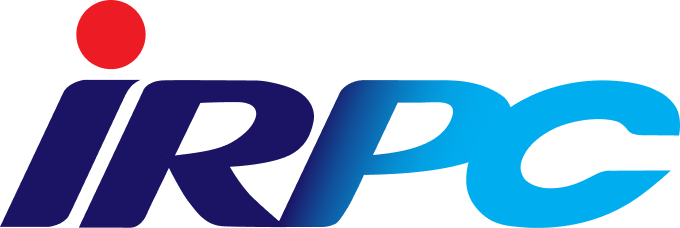Operational Efficiency & Management System Roadmap, 2017 – 2022, was initiated to improve IRPC’s operational performance. Furthermore, IRPC commits to reduce environmental impact from its operations by initiating environmental management programs covering energy efficiency, air quality control, and wastewater and waste management, as well as attending and being accredited by the Eco Factory program launched by the Industrial Environment Institute, the Federation of Thai.



IRPC is aware of the impact that may occur to surrounding communities from business operations and realizes its role in using the world’s resources with responsibility. Therefore, IRPC places great importance on the eco-efficiency management throughout the supply chain by using resources and raw materials in the most efficient manner, enhancing energy efficiency, managing air quality, and managing wastewater and waste.
IRPC has a policy for Quality, Security, Safety, Occupational, Health, Environment, and Energy Management (QSSHE), which focuses on:
- Operational Excellence Management System (OEMS)
- Systematic risk management planning
- Compliance with laws and regulations
- Risk control and mitigation according to 7Rs principle, coupled with guidance under the Green Turnaround concept and circular economy principle
IRPC has established integrated management for energy, air, water, and solid waste under the scope of the Eco Factory, which is implemented into the operation of every plant to generate continued development. The Green Turnaround concept has been adapted into the management approach to reduce impacts during annual shutdown and turnaround. For instance, the operation is conducted in a closed system to manage the volatile organic compounds (VOCs), waste and wastewater, and odor control. Furthermore, in 2021, IRPC has invested over THB 538 million to build systems to prevent or reduce pollutants, conduct environmental quality monitoring, improve environmental management and efficiency to reduce energy use, conserve biodiversity and ecosystems, and lead to a low carbon society.
Integrated Management System
Management System/Process
IRPC adopts the PTT Group’s Operational Excellence Management System (OEMS) to manage the organization towards operational excellence in every aspect of the operational process, including energy consumption, air quality control, and wastewater and waste management,. To set reduction targets for energy consumption and utilize energy efficiently, IRPC established a long-term management plan setting the organization’s energy consumption target to not exceed 76.2 million GJ in 2021 and 72.2 million GJ in 2025. IRPC also has a goal to reduce the Energy Intensity Index (EII) by 89% in 2021. In addition, a long-term goal of efficient energy consumption was enhanced to 83% by 2025 to obtain top quartile performance in the industry.
IRPC recognizes the importance of controlling air quality and odor to prevent impacts on surrounding communities and measures its air quality and odor performance through odor complaints every year. Through continuous development of new technologies to monitor air quality, IRPC places measures to control air pollutants, such as Sulfur Oxide (SOx), Nitrogen Oxide (NOx), and Total Suspended Particles (TSP). Control measures also focus on Volatile Organic Compounds (VOCs) through improving chemical tanks and establishing a VOC inventory record to monitor the emission source. While odor control projects have been implemented through an Elevated Flare and Enclosed Ground Flare (EGF) to lower odor levels and shield surrounding communities from noise and light.
IRPC generates a large portion of hazardous waste for example spent caustic generated from caustic that use to limit contaminate substances in production process at uhv plant and non-hazardous waste like fly ash from coal for generated power from Power plant which needs to be managed accordingly. The generation of waste and improper industrial waste disposal could cause serious impacts to the environment, such as soil and groundwater contamination and visual impact. IRPC is committed to reducing waste from its operation process by applying the 3Rs principles (Reduce, Reuse, Recycle) into the organization’s integrated waste management.
IRPC also follows the Zero Waste to Landfill policy established by the PTT Group to lessen impacts on the environment and to create more beneficial use, such as initiating a waste to energy project. IRPC monitors the generated waste volume and disposal regularly. The collection of waste-related data are stored in a database. In addition, IRPC developed the plastic waste platform to collect plastic waste data from the market and integrate it into the IRPC production process to reduce the impact of plastic waste disposal. IRPC also ensures that management of waste by third-party (external/third-party) is in line with relevant regulations.
Furthermore, IRPC manages its wastewater by conforming to governmental regulations and local authorities for water discharge from wastewater treatment. The water management approach was implemented by using the 3Rs principle for effective water usage, such as reusing treated wastewater for watering plants and gardens in central areas within the operating zones.
Development of Environmental Management Accounting System
IRPC has developed a system to integrate expenses, income, and environmental investment under the international standard UN2001 to obtain accurate, adequate, and reliable data. Such data are used in planning, controlling, and making decisions on environmental management for the short- and long-term to enhance environmental management efficiency for routine operations and to reduce both the cost of production and impacts on the environment and society. Phase 1 began operation in March 2020.

2021 Environmental Management Expense from Environmental Management Accounting (EMA) System
- Expense and Investment for Waste and Emission Treatment 502 Million THB
- Expense and Investment for Prevention and Environmental Management 35 Million THB
Performance
Download Document: Environmental Performance

